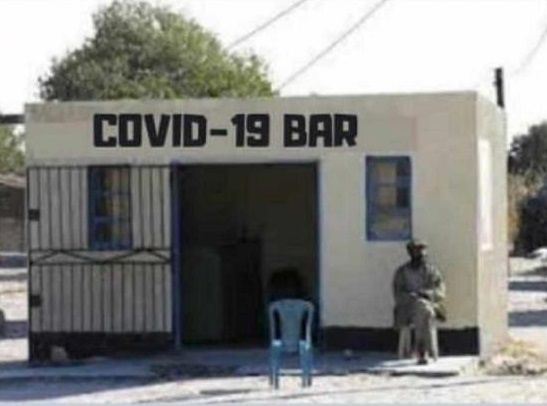
It was a serious policy mistake to extend the lockdown – one that we will still pay for dearly

A country is not shut down that easily. This we have realised only since the lockdown was announced. Immediately the practical realities of trying to shut down a country hit us in the face and exemptions had to be devised on an ad hoc basis as we went along. That there was no synchronised, coordinated policy or strategy in the beginning was crystal clear.
But over the past three weeks, authorities have cottoned onto the practical implications and a vague policy framework started emerging in drips and drabs. In the meantime, law enforcement also upped their tactics, going from hesitant observation to direct intimidation.
All the while, it became patently obvious that Corona infections had plateaud and that the feared run-away bushfire never happened, not even in the townships where the lockdown was a farce from the beginning.
The potential impact of a disease like Covid-19 must not be underestimated. In this regard, the lockdown was a necessity and it was done ahead of the curve. But at the same time that our leaders decided to shut the economy down, they also had to consider what happens afterwards.
In my mind, at that point where the lockdown was announced, the paramount next step should have been a strategy to expedite its end and relief the whole country of its strangling effect on the economy.
The balance between protecting people and allowing people to make a living, is a delicate one. It has been debated for the past month in so many article and opinions, not only here but worldwide, that I suspect nobody has yet hit on a workable solution.
In Namibia it worked. The lockdown had the desired effect but I fear very few of the people who hold our future in their hands, ever gave the “What now?” question a second thought.
Then we were hit with the devastating news of the extension.
Surely, there must be some causal link between the spread of the Corona virus and the restrictions on people’s movements and livelihoods. And since the virus has not spread, what possible reason could there be to make it longer. The only difference between the first lockdown and the extension, is that law enforcement has caught up with the situation and is now suppressing, even harassing people whenever there is the slightest whiff of a lockdown infringement.
What is the logical connection between the disease and the extension. There is none, at least not a single reason supported by empirical observation, or a workable model of how the disease will spread further.
I see many projections for developed countries but other than the China experience, I have no other benchmark to compare the clinical implications. This is a medical dilemma and one for which I think there is no answer simply because there is no precedent.
For the economy however, there are many models and benchmarks. This is not an unknown. The damage that our authorities is causing by making an already dire situation even worse, can be plotted relatively accurately, at least within the parametres of reliable scenarios.
This economy needs to be unchained. The damage so far is extensive, and the damage that will still come from the next two weeks will only dig the hole deeper.
Seeing that the extension has now become gospel and knowing the government’s intransigence when it comes to admitting mistakes, I have one suggestion to try and contain the damage: Make an official announcement that the lockdown officially ends at midnight on Thursday 30th of April. That is at 00:01 on Friday morning.
The Friday is Workers’ Day, a public holiday and the Monday is Cassinga Day, another public holiday. When the long weekend is formally excluded from the extension, it allows everybody an opportunity to normalise their lives as much as possible in preparation for the resumption of business on the Tuesday. It also allows a travel window for the thousands of people who have left Windhoek and the other big towns, to make travel arrangements to ensure they are back at work on Tuesday morning. This way the economy can restart with a bang and not with splutters and more ruffled feathers.







































